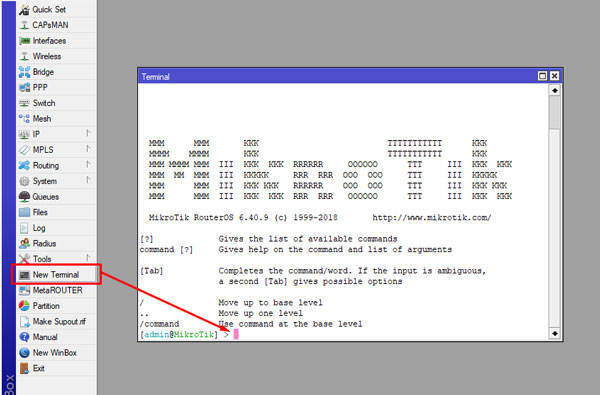
Note that connection-state=related connections connection-nat-state is determined by the direction of the first packet. If no-mark is set, the rule will match any unmarked connectionĬonnection-nat-state ( srcnat | dstnat Default: )Ĭan match connections that are srcnatted, distracted, or both. Matches packets marked via mangle facility with particular connection mark. Should be used together with connection-state=new and/or with tcp-flags=syn because matcher is very resource-intensiveĬonnection-mark ( no-mark | string Default: ) Matches connections per address or address block after a given value is reached. 0 - means infinity, for example connection-bytes=2000000-0 means that the rule matches if more than 2MB has been transferred through the relevant connectionĬonnection-limit ( integer,netmask Default: ) Matches packets only if a given amount of bytes has been transferred through the particular connection. If the input does not match the name of an already defined chain, a new chain will be createdĬonnection-bytes ( integer-integer Default: ) Specifies to which chain rule will be added.

return - passes control back to the chain from where the jump took place.reject - drop the packet and send an ICMP reject message.passthrough - if a packet is matched by the rule, increase counter and go to next rule (useful for statistics).After a packet is matched it is passed to the next rule in the list, similar as passthrough log - add a message to the system log containing the following data: in-interface, out-interface, src-mac, protocol, src-ip:port->dst-ip:port and length of the packet.

jump - jump to the user-defined chain specified by the value of jump-target parameter.fasttrack-connection - process packets from a connection using FastPath by enabling FastTrack for the connection.add-src-to-address-list - add source address to address list specified by address-list parameter.add-dst-to-address-list - add destination address to address list specified by address-list parameter.A packet is not passed to the next firewall rule. PropertiesĪction to take if a packet is matched by the rule: More detailed packet processing in RouterOS is described in the Packet Flow in RouterOS diagram. If a packet has not matched any rule within the built-in chain, then it is accepted. If a packet matches the criteria of the rule, then the specified action is performed on it, and no more rules are processed in that chain (the exception is the passthrough action). When processing a chain, rules are taken from the chain in the order they are listed there from top to bottom. Packets passing through the router are not processed against the rules of the output chain output - used to process packets originated from the router and leaving it through one of the interfaces.forward - used to process packets passing through the router.Packets passing through the router are not processed against the rules of the input chain input - used to process packets entering the router through one of the interfaces with the destination IP address which is one of the router's addresses.Therefore careful planning of the firewall is essential in advanced setups.Ī firewall filter consists of three predefined chains that cannot be deleted: On the other hand, when securing a customer network it would be an administrative nightmare to accept all possible services that users may use. This strategy provides good control over the traffic and reduces the possibility of a breach because of service misconfiguration.

MIKROTIK ADDRESS LIST PSD HOW TO
There are two methods on how to set up filtering: Firewall filters are used to allow or block specific packets forwarded to your local network, originated from your router, or destined to the router.


 0 kommentar(er)
0 kommentar(er)
